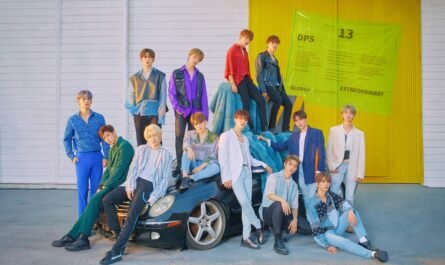The news of the comeback of the group ‘Blackpink’ last summer caused YG stock prices to rise. The new album sold 1 million copies on the first release day and became a million-seller. BLACKPINK’s comeback stage was presented to fans worldwide through the YouTube channel, and it reached 90.4 million views in one day on the day of its release on August 16th and 300 million views in one month. That’s an impressive number.
The power of the global K-pop craze is the InternetInternet and fandom. On the internet, fans worldwide reproduce and share K-Pop content. Fans worldwide are transforming into a creative group that goes beyond cheering for artists and watching music videos. Changes in the fandom, NFT, and Internet media environment became the starting point for structural changes in the entertainment industry. The so-called ‘Enter Big 4’, such as Hive, JYP, SM, and YG, are showing active movements of change.
In January, SM Entertainment released the ‘Music Nation SM Town Meta Passport’ mobile application (app). When SM fans create their worldview, grant citizenship of SM Town, and use the services provided, fans’ activities are recorded and stored transparently so that they can receive various benefits according to their activities.
Hive has developed and operated the fandom platform ‘Weverse’ through its subsidiary Weverse Company. Weverse has an active community in 238 countries and regions worldwide and has 6.8 million monthly users. Idols prepare a gift set with a New Year’s calendar, diary, and video collection for their fans every year.
In the 2022 BTS season greeting, physical CDs were not sold. Instead, Weverse provided a card with a digital access code to watch high-definition videos on demand. Various attempts are being made not only to communicate with artists but also to fan meetings and online performances on the Weverse online platform.
JYP also formed a subsidiary, Dear U, in partnership with SM. Dear, You’s app ‘Bubble’ communicates one-on-one with artists. If you pay 4,500 won per month, you can enjoy messages, photos, videos, and voices sent directly by your favorite artists. There are also changes in broadcasting. For example, on the music broadcasting channel Mnet, artists sometimes stand on stage, and fan meeting events are held depending on fans’ online activities.
There is also an attempt to share artist profits with fans. For example, Yuna is a virtual K-pop idol created by Seoul Stars. She Yuna and she issued 10,000 nft. Her nft holders receive a dividend of Yuna’s primary earnings, including 10% of her debut album revenue and 5% of ad streaming revenue. She also has various benefits, such as free admission to concerts, pre-purchase rights, and the opportunity to participate in writing lyrics for her Yuna and her albums. Seoul Stars suggests explicitly how to create an environment where Yuna’s intellectual property rights and fans can grow together.
For the token economy, in which digital asset trading, such as the NFT marketplace, be traded, to operate advantageously, a fandom must first be established. The entertainment market is already standing on a solid foundation of the K-pop fandom. The upcoming entertainment world is made by participation, not viewing.











